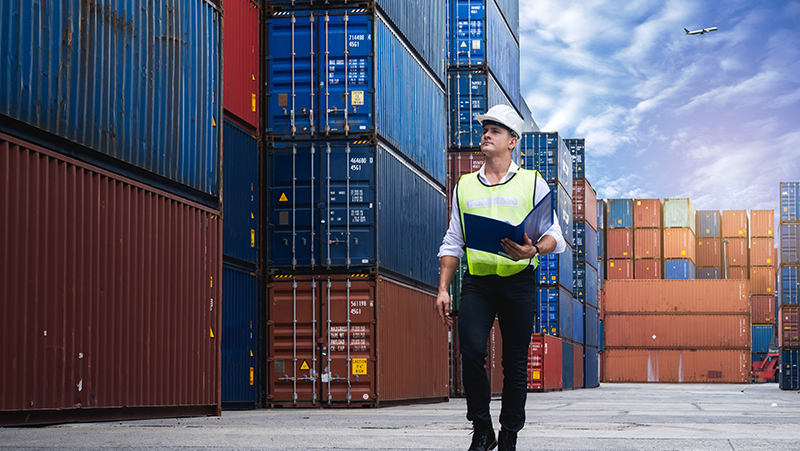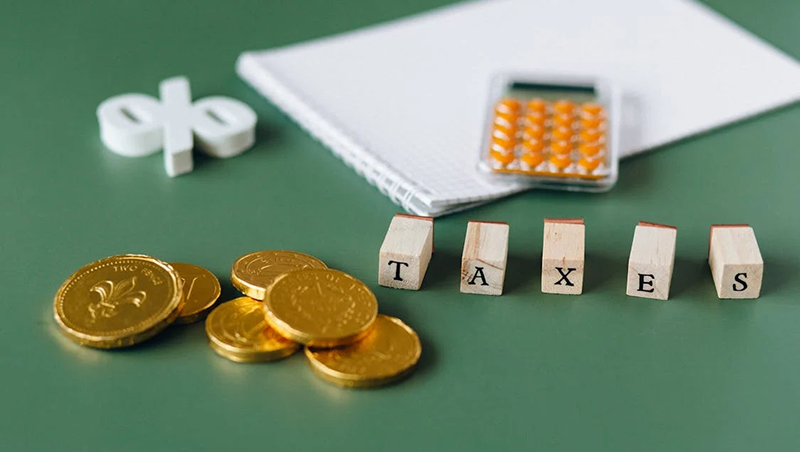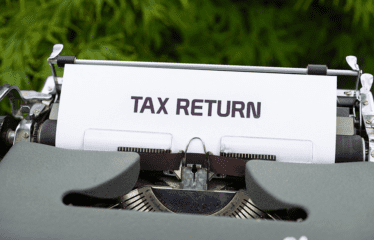We can meet any of

Ensuring the feasibility and rationality of your import / export operations, in compliance. Whether your company is based outside the EU or within it: in FISCALEAD you will find a solid partner.

Managing your excise statutes, acting as your excise tax representative, setting up/reviewing your reporting processes or providing you with our excise numbers… whether it’s alcohol or petroleum products, gas or electricity, our experts are there for you.

Whether you need us to act as your VAT agent or tax representative, to file your regular VAT returns or to claim refunds, you can rely on our thoroughness, at the right price.
Do you need support? Contact FISCALEAD

FISCALEAD
Founded by Marcie REYNO-DALLE and Alexandra LOUYOT, FISCALEAD provides operational assistance in indirect taxation: Customs, Excise and VAT. With many years’ experiences in both big 4 law firms and in-house, our team is experienced in a wide range of international business models, industries, and supply chains.
Committed to listening to your operational needs, we put our technical expertise at the service of your logistical, IT and HR realities.
Whether you call on our tax reporting or operational advisory services, our obsession is to ensure that indirect taxation is no longer a barrier for your business but opens up new opportunities for you.
Our added value? In an increasingly globalised and digitalised world, at FISCALEAD expertise is a priority, and technology a necessity – without ever being dissociated. Come and meet us!
We work with a number of firms that we have partnered with.
We monitor European tax and customs matters for our customers and run technical and practical workshops, webinars and training courses.
Over 15 years' experience in indirect tax management: Customs, Excise, VAT.
Key figures
€ Million in VAT refunds obtained
HL of alcohol sold online thanks to FISCALEAD
k M3 of petroleum products managed
More than 700 customs declarations managed by FISCALEAD
Discover our blog for more news and best practices
Indirect Tax training sessions
Would you like to train yourself and/or your teams in VAT, customs or excise duties?
FISCALEAD is your privileged contact for all your technical and practical knowledge needs on this triptych of indirect duties.
Our experts are ready to train you!



Let’s discuss your needs
Agile and responsive, we listen to your specific needs. You have consulted a lawyer and want to move on to the operational implementation phase of his or her legal advice? We can help you implement the recommendations of your legal advisers in clear, organised and watertight procedures.
Contact usGlossary
Excise
Excise duties are indirect taxes levied on the storage, production, movement or sale of three product families: alcohol and alcoholic beverages, tobacco and energy products. Unlike VAT, the tax base for excise duties is not an amount, but a volume (or weight) of product. Because of the fiscal stakes involved for member states, these excisable products are covered by an obligation of traceability, and excise-duty suspension regimes are provided so that economic operators do not have to bear duties at each stage of trade or production, as well as excise-duty status (authorized warehousekeeper, registered consignee, registered consignor).
Free-trade agreements
Free-trade agreements and unilateral preferences provide tariff preferences under certain conditions.
Their aim is to remove tariff (customs duties) and/or non-tariff (formalities) barriers to trade between two countries or groups of countries. With bilateral agreements, the European Union (EU) aims to boost the competitiveness of the European economy. With unilateral agreements (such as the GSP – Generalized System of Preferences), the EU aims to encourage exports (and thus economic development) from developing countries. Understanding these agreements is essential if a company is to identify the strategic choices it needs to make when sourcing and/or selling outside the EU.
French Customs Administration
In France, the customs and excise departments, which come under the authority of the Minister of Finance and Public Accounts, have the following three missions:
* Firstly, it has a tax mission, as it collects and contributes around 13% of national revenues, in line with its European counterparts.
* As an extension of this mission, customs have an economic role. Relying on the rules established for international trade, customs control commercial flows according to three objectives: Liquidity – Security – Quality, with procedures adapted to the needs of companies. Customs’ mission is to prevent fraud and major international trafficking. It is responsible for protecting the economic and financial interests of the nation and local communities (mobilization against the scourge of counterfeiting, combating fraud in the Common Agricultural Policy, etc.).
Customs helps protect public health and safety.
* Finally, customs and indirect tax services also contribute to protecting the environment (combating various forms of pollution) and national heritage (controlling trade in art, collectors’ items and antiques).
Tax base
The tax base is determined according to specific criteria for each type of taxation. It is the taxable base of a tax or contribution. In the case of VAT, the tax base includes the value of the goods or services subject to the tax. It corresponds to the price actually received by the vendor or service provider. This VAT tax base also includes incidental costs and additional taxes not included in the price, with the exception of VAT itself or similar taxes.
VAT Taxable person
A person required to pay a fee or join an organization. Persons liable to VAT are those who independently carry out taxable economic activities, regardless of their legal status, their situation with regard to other taxes and the form or nature of their intervention.
Customs audit
A customs audit is based on an examination of a company’s internal organization and processes with regard to customs or excise matters (accounting, customs, IT, transport, logistics, security).
In particular, we assess the quality of procedures and the formalization of internal controls put in place to ensure compliance.
If necessary, we recommend actions for improvement and remediation.
Reverse charge of import VAT
Reverse charge of import VAT enables import VAT to be collected and deducted simultaneously on the VAT return (monthly or quarterly CA3), without having to pay it in advance to customs. Import VAT is declared and paid when the customs declaration is submitted. This mechanism exists not only in France, but also in other countries such as the Netherlands, Belgium and the United Kingdom.
e-AD or e-SAD
Electronic accompanying document required for the movement of goods subject to excise duty. The “e-AD” accompanies the movement of duty-suspended goods (both domestic and intra-Community). The “e-SAD” accompanies the movement of duty-paid B2B goods from one member state to another, i.e. within the EU only.
SAD
The Single Administrative Document is a document standardized at European level that all companies carrying out import and export operations must complete and submit. It lists the information required for customs determination and declaration, such as classification, value, origin, type and quantity of goods. It also includes details of delivery conditions and information. In short, it is an import or export declaration.
Trade of goods declaration (DEB/INTRASTAT)
Within the European Union, trade is free, with no formalities and no border controls. In France, although trade is free, the declaration of exchange of goods reports all intra-Community trade (from one member state to another) carried out by a company. It met the European intrastat obligation. This statistical declaration had to be transmitted monthly to customs. It was replaced in January 2022 by the EMEBI, a monthly statistical survey of intra-EU trade in goods.
Monthly statistical survey on intra-EU trade in goods (EMEBI)
Are you sending goods from one member state to another? Or receiving goods from one member state to another? Within the European Union, most intra-Community trade is carried out freely, without formalities or border controls (with the exception of goods subject to excise duty). However, companies must respond monthly to a statistical survey on intra-EU trade in goods (EMEBI) conducted by the customs services. This compulsory survey is essential for producing national foreign trade statistics, and is used by many economic players to monitor the country’s economic activity.
The companies concerned receive a letter-notice from the DGDDI informing them of their obligation to respond to this survey. They are then asked to transmit their response via a secure data collection site, using their login and password. Companies are obliged to respond to the EMEBI if they are on the annual sampling list and have received the corresponding letter-notice specifying the type of flow (introduction, dispatch or both) and the period concerned.
DELTA
Customs clearance via online processing enables you to carry out customs formalities. This digital tool is designed for any company that has to file customs declarations in France, and applies to all goods and customs procedures.
Companies can use different versions of DELTA:
* DELTA X: provides accelerated customs clearance for express and postal freight.
* DELTA G: enables two-stage customs clearance, with one simplified declaration and one global declaration at the end of the period.
* DELTA T: enables transit declarations to be made between member states and states party to the Transit Convention.
Registered consignee
The registered consignee (“RC”) status only allows you to receive excise goods (alcohol, energy products, tobacco) under duty suspension from one member state to another. On receipt, you must release the products for consumption and pay excise duty in France as a “registered consignee”.
This status alone does not allow you to dispatch or store excise-suspended products, or even to receive excise-suspended products domestically. In principle, a guarantee is compulsory, but deductibles may apply.
DGFIP
The Direction Générale des Finances Publiques is a French public service resulting from the merger of the Direction Générale des Impôts and the Direction Générale de la Comptabilité Publique.
It has a role in taxation, a support role for businesses and missions in the field of public management. In recent years, the DGFIP has transferred some of the competences formerly assigned to the DGDDI (Direction Générale des Douanes et Droits Indirects).
SAD-C
Simplified accompanying document for duty-paid movements of goods subject to excise duty (excluding intra-Community B2B). The DSA-C reproduces all the details of the DSA, but on a commercial document such as an invoice or delivery note.
EOR/IOR
A non-EU company wishing to export must appoint a trusted third party established in the European Union, as it cannot act as an exporter from a customs point of view. The Exportator of Records or Third Party Exporter assumes responsibility for the export. The Importer of Records (IOR), on the other hand, is a commercial entity, usually a company or organization, which is legally responsible for importing goods into a given country, on behalf of a third party. This entity acts as the importer of record for the goods, and is responsible for complying with all customs and tax regulations associated with importing on behalf of a third party. The IOR is responsible for submitting the required customs documents, paying import duties and taxes, and complying with all legal requirements associated with importing the goods.
EORI
A Community database has been set up to identify every economic operator who interacts with the customs administrations of the European Union (EU) or carries out activities subject to customs legislation, using a unique number known as the EORI number.
An EORI number is mandatory for :
Import or export goods within the European Union.
Submit, amend and renew applications for action to protect intellectual property rights, particularly in the event of counterfeiting.
Member State
By satisfying the accession criteria laid down by the Copenhagen European Council in 1993, and signing the Accession Treaty with each member state of the European Union (EU), a candidate country becomes an EU member state. Each of the 27 member states is bound by the Treaties and the acquis communautaire, participating in the administration of the EU on an equal footing.
The EU currently comprises 27 member states: Belgium, Bulgaria, the Czech Republic, Denmark, Germany, Estonia, Ireland, Greece, Spain, France, Croatia, Italy, Cyprus, Latvia, Lithuania, Luxembourg, Hungary, Malta, the Netherlands, Austria, Poland, Portugal, Romania, Slovenia, Slovakia, Finland and Sweden.
Non-member country
A third country is a country or territory outside the European Union.
Registered consignor
The status of Registered consignor (“RC”) only allows products to be shipped under excise duty suspension following their importation into France. The subsequent shipment may be to France or to another member state.
This authorization does not permit the receipt or storage of excise goods under excise duty suspension
Exporter
The definition of an exporter for customs declarations lodged in the European Union (EU) is defined unilaterally by Delegated Regulation (EU) of the Union Customs Code (UCC) No. 2015/2446 (Article 1, point 19). As such, it must be established in the EU and be empowered to decide on the shipment of goods outside the EU.
As far as origin is concerned, according to the origin protocols of trade agreements signed by the EU, the exporter is a person established on the territory of one of the parties to the agreement, capable of providing, at the request of the customs services, the documents justifying the origin of the products covered by the proof of origin.
Registered exporter
Registered Exporter Status (EE or REX) allows exporters to certify the preferential origin of their products by means of specific declarations on each commercial document identifying the exported product and the exporter. This status is referred to as the acceptable proof of origin for invoices over €6500 in many free-trade agreements.
Pro-forma Invoice
A pro forma invoice shares many elements with a standard invoice. However, their distinction lies in their purpose and impact. Mainly used in international trade, the pro forma invoice is intended to inform a customer or third party, but can also be used to materialize a stock transfer. Pro forma invoices have no legal value and are therefore not included in company accounts, since they are not associated with a binding financial transaction.
Indirect Tax
Whether a tax is direct or indirect depends on which entity bears the burden of the tax. If the taxpayer who pays the tax to the Treasury is also the taxpayer who bears the cost, the tax is direct. On the other hand, when the administration collects the tax from an entity that does not bear the cost, this constitutes an indirect tax.
European legislation aims to coordinate and harmonize VAT regulations, while unifying excise duties on alcohol, tobacco and energy. The ultimate aim is to ensure the smooth operation of the European Union’s internal market through indirect taxation.
Corporate tax
Corporation tax (impôt sur les sociétés – IS), also known as income tax, is a tax levied on the annual profits of companies carrying on their usual business in France. It is a direct tax.
Incoterm
Incoterms (International Commercial Terms) are governed by the International Chamber of Commerce, and are a set of standardized contractual clauses relating to the carriage of goods and the division of responsibilities (costs and risks) between the shipper and the consignee.
Intrastat
Set up by Eurostat on January 1, 1993, following the creation of the single European market and the abolition of border controls between member states, the Intrastat system collects statistics on intra-Community trade. The information is collected directly from companies, and is used in particular to analyze data relating to value-added tax (VAT). Intra-EU trade statistics record the arrival and dispatch of goods between member states.
La déclaration européenne de services (DES)
Since January 1, 2010, all French companies offering services to EU member states have been required to submit a European declaration of services. It summarizes the operations giving rise to the reverse charge of VAT by the customer identified in the other member state, in application of article 196 of directive 2006/112/EC of November 28, 2006. The DES must be sent to the customs authorities to enable them to check the VAT status of intra-Community supplies of services, especially via the online European service declaration service.
MACF/CBAM
The Carbon Border Adjustment Mechanism (CBAM) is a new European Union regulatory instrument. Its aim is to apply a price to the carbon emitted in the manufacture of imported goods, equivalent to that imposed on European industries producing similar products. The main aim of this scheme is to combat carbon leakage, particularly in the context of a strengthening of climate ambitions at European level. The MACF obligation is triggered by imports, and is based on a restrictive list of products (either finished products or goods containing these products) determined by the European Union to present a significant risk of carbon leakage. These include electricity, steel, fertilizers and cement.
Combined nomenclature
Based on the World Customs Organization’s Harmonized System nomenclature (with additional subdivisions specific to the EU), the Combined Nomenclature is a goods classification tool. This system has been set up to meet the requirements of the Common Customs Tariff and intra-EU trade statistics. It is presented in the form of a systematic list of commodities used by most countries in their trade. Identifying the Combined Nomenclature that corresponds to your merchandise means proceeding to its tariff classification, also known as determining the tariff species.
VAT number
The intra-Community VAT number is an individual identification number assigned to companies subject to VAT. Its role is to facilitate and guarantee commercial transactions carried out by companies within the European Union. More specifically, it identifies the companies concerned and enables periodic VAT returns to be filed, as well as facilitating VAT tracking and refunds.
AEO
Authorized Economic Operator (AEO) status offers any company involved in international trade the possibility of obtaining quality certification for its customs and security-safety processes, thus distinguishing the most reliable companies. The process is voluntary and involves collaboration with customs authorities, with acceptance criteria governed by European regulations. The company is audited by the customs authorities prior to issue. Issued by the customs authorities of a member state, AEO status is recognized throughout the European Union by third countries that have signed mutual recognition agreements. In addition to simplifying regulatory compliance in terms of customs and security-security, the AEO authorization process offers the possibility of effectively evaluating and controlling company processes.
Preferential origin
Preferential origin is a criterion for benefiting from a reduced or zero rate of customs duty, as provided for in a free trade agreement. Compliance with the rules of preferential origin is essential to obtain this reduction or exemption from import duties, within the framework of preferential trade agreements concluded by the European Union (EU) with certain countries. This concept determines whether products originating in the European Union or in the partner country can benefit from the preferential tariff treatment provided for in the agreement in question when they are imported. Taking advantage of preferential origin, by securing it, enables you to import and/or sell in a country by arming yourself with an additional competitive advantage.
Withholding tax
Withholding tax on income has been in force since January 1, 2019 in France. In practice, income tax is deducted from the monthly salary of an employee who is a French tax resident. The taxpayer continues to declare his or her income each spring, determining the levy rate based on various factors. Despite the synchronization between income collection and tax payment, the rate is calculated on N-2 income declared in N-1, with an update in September. Any discrepancy with the tax deducted at source is adjusted after the annual tax return, enabling a refund or settlement of the balance.
Customs procedure
The customs procedure designates the customs destination given to an imported good in relation to the regulations. These goods may either be released for free circulation, or placed under a special procedure allowing non-Community goods to be imported under suspension of customs duties, VAT and commercial policy measures. Depending on the regime, these goods may be authorized for storage, use or processing before being re-exported from the EU or placed on the European market.
Direct and indirect customs representatives
According to the European Customs Code, when a consignor wishes to import goods into the EU from a third country or territory, he can either lodge his customs declarations by his own means and on his own behalf, or use the services of a customs representative:
- Direct: who acts in the name and on behalf of others in customs formalities (the customs representative’s liability is limited, and only companies established within the EU can use them).
- Indirect: who acts in his own name, but on behalf of others in the same formalities. (full joint and several liability of the indirect customs representative, required for all non-EU companies, but could also be appointed by an EU company).
Registered customs representative
Since May 1, 2016, anyone registered as a customs representative has been able to carry out customs formalities and acts either as a direct representative, where the representative acts in the name and on behalf of others, or as an indirect representative, where the representative acts in his or her own name but on behalf of others. In order to be accredited as a registered customs representative, a company must prove its experience and professional expertise in customs matters, as well as meeting financial solvency criteria.
Fiscal representative
A fiscal representative is a French individual or legal entity subject to VAT in France, who undertakes to carry out the VAT formalities and payments required for a non-EU foreign company carrying out taxable operations in France. Fiscal representation does not only concern VAT, it also applies to excise duties, PAS (levy at source), gaming taxes, etc… Tax representatives are jointly and severally liable for their clients’ taxable transactions. Certain third countries that have signed a mutual administrative assistance agreement with France are not obliged to appoint a fiscal representative, and may appoint a fiscal agent only, who does not bear joint and several liability.
French tax on sugary drinks
Tax on non-alcoholic beverages containing added sugar or artificial sweeteners. These measures apply in particular to products such as soft drinks and energy drinks.
Taxe Premix
PREMIX Tax is a tax on beverages made from a mixture of alcoholic beverages, or an alcoholic beverage and a non-alcoholic beverage.
TGAP
The General Tax on Polluting Activities (TGAP) is compulsory for companies engaged in polluting activities or using harmful products. It includes the TGAP applicable to hazardous and non-hazardous waste, as well as the TGAP excluding waste applied to polluting emissions, detergents and extraction materials. The amount of TGAP varies according to the activity and product concerned. It should be noted that the TGAP applied to fuels has evolved to become the TIRIB (Taxe Incitative relative à l’Incorporation des Biocarburants), then the TIRUERT (Taxe Incitative relative à l’Incorporation d’Énergie Renouvelable dans les Transports).
TIC
TIC: Taxes Intérieures de Consommation, which are now known under the CIBS (Code des Impositions des Biens et des Services) as “Accises Energies”. Since January 1, 2022, responsibility for managing and collecting domestic consumption taxes (TIC) on electricity (TICFE), natural gas (TICGN), energy products and coal (TICC) has been transferred to the Public Finance Department. All companies acting as energy suppliers and/or consumer-debtors are concerned by the TICFE, TICGN and TICC.
TICFE
Internal consumption taxes (TIC) on electricity (TICFE), natural gas (TICGN) and coal (TICC) have been entrusted to the General Directorate of Public Finances since January 1, 2022. The TICFE (now called Excises Energie) is payable on all deliveries of electricity to end consumers. The following are liable for the fraction levied on electricity:
* Electricity suppliers, i.e. companies that purchase or produce electricity for resale to end consumers.
* Persons who produce electricity and use it for their own needs.
Freight forwarder
The freight forwarder is a commission agent or service provider commissioned by the shipper/receiver of the goods. On behalf of his customers, he handles all operations relating to their goods: breaking bulk, handling, storage, as well as various commercial and administrative formalities.
Custom value
The customs value, in conjunction with the tariff classification and origin of the goods, is one of the three essential elements for calculating import duties. The “customs valuation” process aims to determine the real economic value of imported goods. The rules governing this valuation are precise and (in principle) harmonized within the European Union, making it possible to calculate not only customs duties, but also VAT and most other duties and taxes due on importation.

